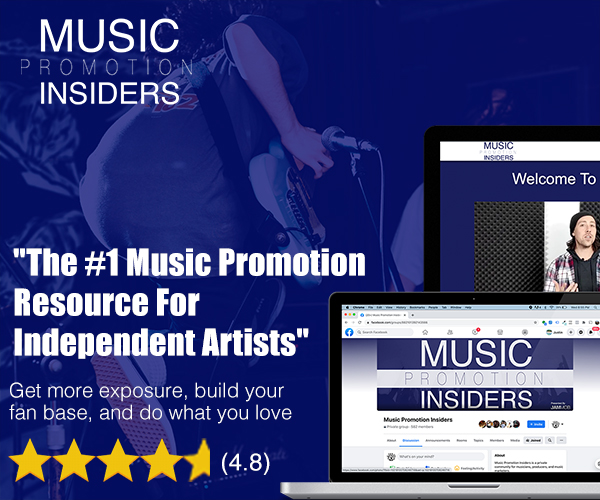Here on the JamMob blog, we talk a lot about how you can build a fanbase and promote your music to start making a living as an artist.
But there’s a whole other side to the music industry that presents a big opportunity to monetize — creating music for brands.
As a musician, sometimes it’s easy to subscribe to the “sell-out” fallacy: that working for businesses makes you less of an artist.
In reality, creating music for brands can help you to:
- Make money off of your music to put back into creative pursuits
- Make connections with people in the music industry
- Quit your day job to make music production your livelihood
And believe it or not, many musicians actually discover that they like working for brands, as it affords them the opportunity to become a full-time musician.
In this article, we’re giving you some insights as to how you can capitalize on this opportunity.
Check out more free training on making music for brands as a full-time career at https://www.jammob.com/tommyzee
The Problem for Musicians
Living as a music artist is a grind. It takes a lot of work to acquire things such as followers, shares, likes, and streams.
Here’s the problem: it is extremely difficult to make money through streaming. Platforms like Spotify are paying just a fraction of pennies per stream — meaning that you have to acquire a significant fan base to see any real cash flow.
(For context, if you release a song that gets 200,000 streams, there would still be 1.75 million songs ahead of you on Spotify).
Toss in a global pandemic that halted all revenue from live shows, and musicians are faced with a dire situation: they can’t make money performing, nor through streaming.
But there’s a solution: creating music for brands.
Why Create Music For Brands?
When you create music for a fanbase, you pitch it to them as entertainment.
But when you create music for brands, you pitch it to them as a service. This requires a little bit of a mindset shift, but there is actually a market for your art.
By treating your music skills as a service, you can offer it to places with a budget that can actually pay you what you're worth — unlike an audience on the entertainment side of things.
Brands need music to evoke an emotional response for consumers and tell the story of their company. And you have the ability to put together sound that resonates.
How Music For Brands Works
Brands across the United States dump billions of dollars per year into creation of original content. But they don’t actually create the content themselves. First, they’ll hire an ad agency for ideation.
From there, the ad agency is responsible for conceptualizing a marketing campaign. Then, they have to hire production partners to execute on that vision.
And one of those production partners is a music production company. Some of these companies that specialize in advertising will have in-house, salaried songwriters/composers, but the vast majority of them use freelancers.
This is great news for you. Because based on what you’ve already produced, you have a portfolio that could be branded for a freelance pitch.
What You Need to be a Music Freelancer
To create music for brands as a freelancer, you’ll first need basic music production setup that you have mastered. Many freelancers do everything from their laptop — you don’t need fancy studio space. It’s all about what comes out of the speakers as a final product.
Once you’ve got your setup, you need skills. A huge misconception about advertising is that it's based on stock music, jingles, or licensing from established artists — but that’s far from accurate.
Brands need music that is:
- Original
- Authoritative
- Cutting edge
And you have to possess the skills to deliver on that — in many cases within 24 to 48 hours depending on deadlines of the assignment.
How to Land Your First Freelancing Gig
So: how do you actually acquire clients that will commission you to make music?
You don’t target the brand itself. As we mentioned earlier, the brand isn’t actually responsible for the campaign ideation and creation.
You also don’t target the ad agency. They’re not responsible for music creation of the brand either; they’re going to hire a specialized music production company to do it for them.
Therefore, you’ll want to pitch yourself to the music production company’s themselves, then let your music get sent up the ladder.
To get in touch with these companies and producers working within these companies, you have to start by making a compelling reel that showcases your talents. It doesn’t matter what type of genre you’re operating in: Indie songwriters all the way to beat producers are in demand. Your reel just needs to be polished and remarkable, and it will be relevant.
Also be sure to keep your reel short. Sending an email with 15 Soundcloud links is going to be too overwhelming for a producer to comb through; they just don’t have enough time. Instead, shoot for 3-8 minutes and provoke attention within the first five seconds.
House your reel on a sleek and simple website. This can be easily created on platforms like SquareSpace, Wix, or WordPress. Include a little bio that talks about who you are and what you bring to the table. Remember: you’re trying to facilitate relationships. People want to have an understanding of who they’re working with.
And when you make your pitch to a music production company, keep your emails clean and to the point. Tease your personality, but don’t write an essay.
When you have a polished pitch, you’ll start getting replies and opportunities to work!
Bonus Tip: You can also list your services on freelancing platforms such as Upwork or Fiverr to land some initial clients.
Conclusions: Your Music Capitalizing off the Gig Economy
We live in a freelancing world. Almost every artistic industry, from graphic design to writing to music, is in demand by brands in some form or another.
While it can be difficult to overcome the “sell-out” fallacy at first, keep this in mind: it’s not a one-way street. You can make a living off of music and still follow your creative pursuits.
Take it from me: a freelance writer. I make a living doing what I love, and still pursue my creative writing in my free time. It’s a win-win.
One day, you might be getting millions of streams on Spotify and making big money through your fanbase. But until then, why not make music as your job? It’s a highly rewarding process.
We hope that this article was helpful for you. If you want a more in-depth discussion of creating music for brands, make sure to watch this Youtube video featuring Tommy Zee — a producer that has made a robust career out of branded compositions.
And for additional free training on making music for brands with Tommy Zee - Click Here




